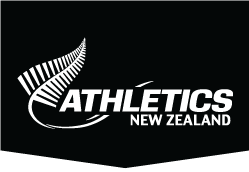Mike Ryan
A dogged, determined performer where no obstacle was too great, it is perhaps no coincidence that Mike Ryan’s finest accomplishments were achieved in unremittingly challenging conditions.
Defying the heat and humidity of Kingston, Jamaica to win a marathon bronze medal at the 1966 Commonwealth Games, two years later the rugged Waikato-based athlete also coped commendably with the oxygen-thin high altitude of Mexico City to win a momentous Olympic marathon bronze.
Sandwiched between the golden eras of Sir Peter Snell and Sir John Walker, Mike’s international successes have often been overlooked. Yet his medal-winning accomplishments – under the coaching of 1964 Olympic 1500m bronze medallist John Davies – should be paid due respect.
Born and raised in Bannockburn, Scotland, Mike joined his local athletics club in his early teens, where he emerged as a significant talent, winning age-group Scottish cross country title and the Scottish junior ...
